This “A Full Spectrum Family: Autism and ADHD” article has been reviewed and approved by Wesley. He hopes it helps others understand the difference between Autism and ADHD, and help others recognize it is possible to thrive in life with one, the other, or both! Listen to the podcast version with Wesley HERE.
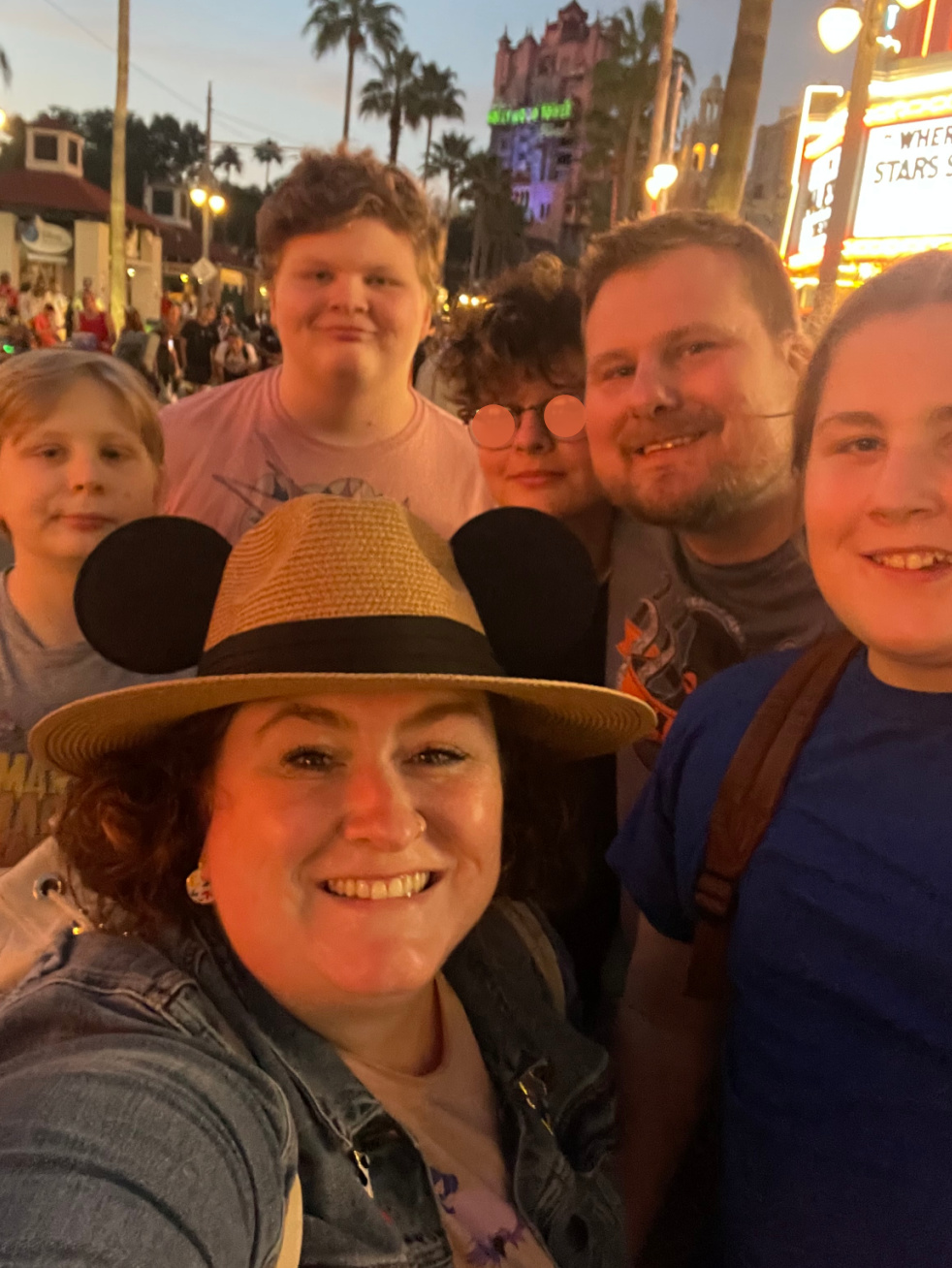
It’s been a big couple of years for our family. I was so afraid of labels for so long, but I realize now how incredibly it can make a positive difference. Last year, we confirmed that Wesley is high functioning on the Autism Spectrum (or ASD, what used to be called Asperger’s). Being able to name what we were seeing allowed us to better communicate his needs. From compassion from siblings to a more robust, supportive Individualized Education Plan (IEP) at school, his world is entirely better for his diagnosis.
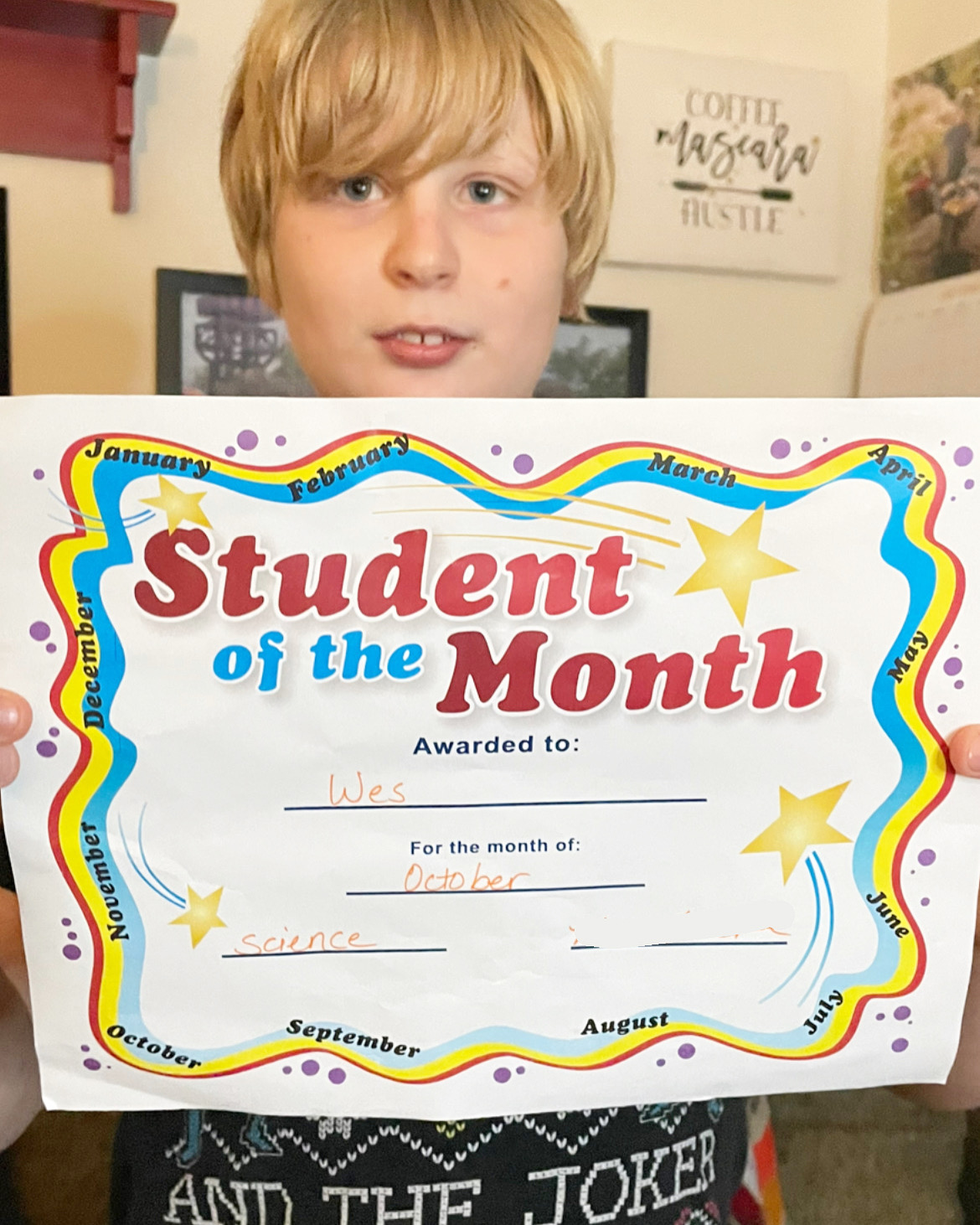
We actually realized that Wesley was autistic for the first time once he was medicated for ADHD. His other neurodivergence began to show more once his impulse control and hyperactivity were more regulated. There is a lot of overlap in symptoms, but looking back we could see that his were always a bit different.
You may remember our trip to Chicago last year when he was BEYOND excited to have access to the Polish museum curators. He had them pulling out historical texts to find new knowledge. That was when I realized.
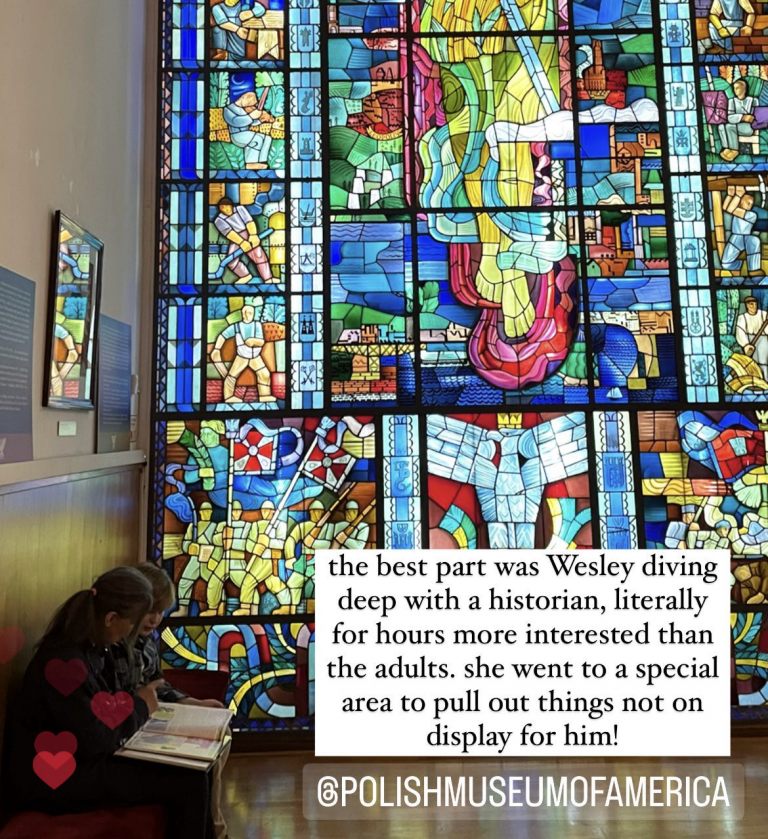
Early Characteristics
As our youngest, we didn’t pay much attention to some of the classic ASD symptoms. Some examples of Wesley’s unique characteristics related to ASD include:
- Delayed language and effected speech skills (he is actually still in speech classes at 13yo)
- Delayed movement skills
- Hyperactive, impulsive, and/or inattentive behavior*
- Unusual mood or emotional reactions*
- Anxiety, stress, or excessive worry*
- Lines up toys or other objects and gets upset when order is changed
- Repeats words or phrases over and over (called echolalia)
- Is focused on parts of objects (for example, Wonder Woman and his “Guys”)
- Gets upset by minor changes
- Has obsessive interests
- Must follow certain routines
- Avoids or does not keep eye contact
*these are also all ADHD symptoms
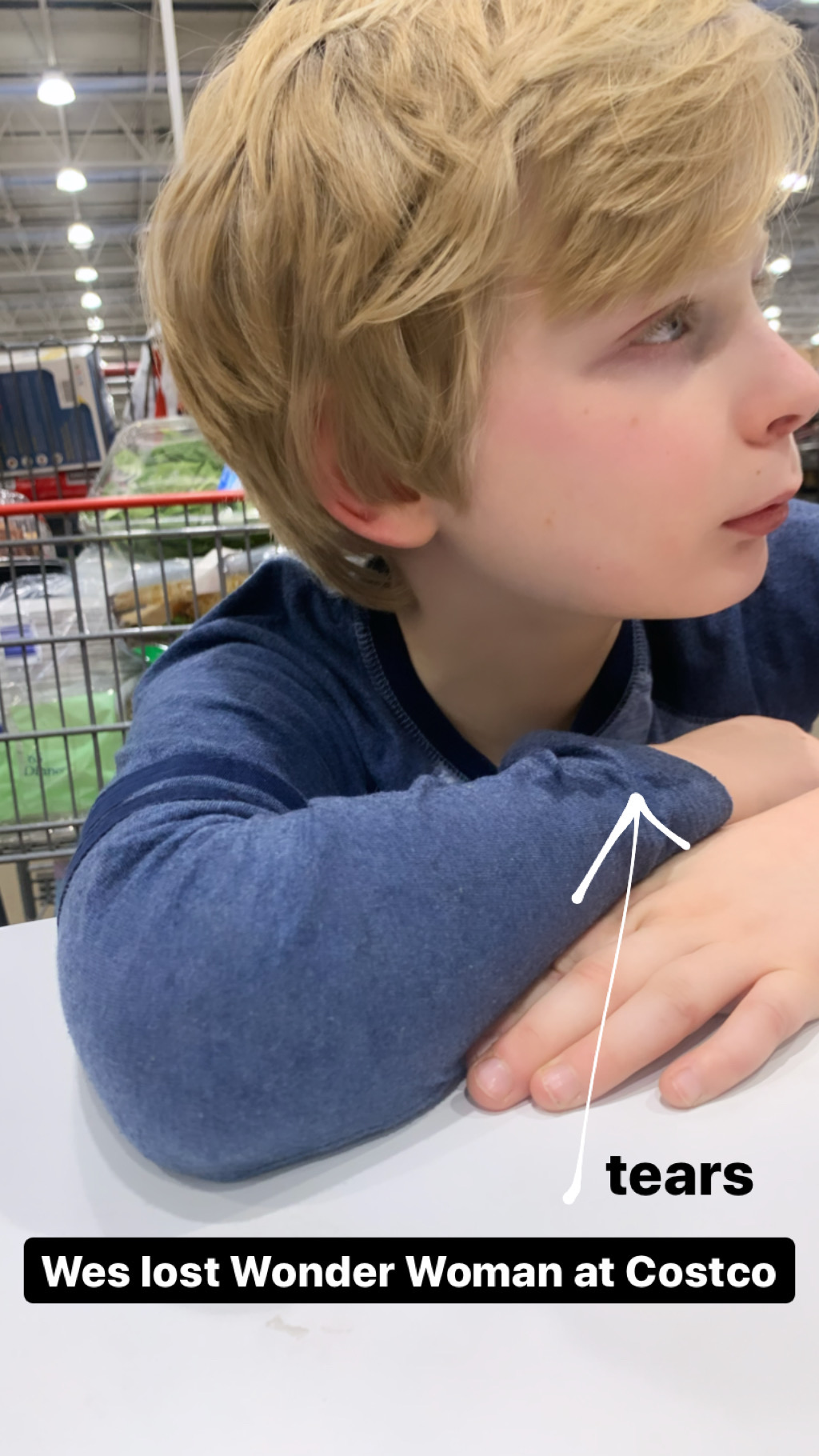
Current Characteristics
During virtual school I saw a lot more of his behaviors and reactions surface, including repeating words that started my initial research. Once he his ADHD medication was effectively helping his impulse control, the other characteristics were more easily identifiable. And we started seeing more mature signs of autism, those typically found in adults:
- avoiding eye contact (still)
- finding it hard to understand what others are thinking or feeling
- getting very anxious about social situations
- finding it hard to make friends or preferring to be on on his own
- seeming blunt, rude or not interested in others (without meaning to)
- taking things very literally (we find it’s helpful to joke he’s like Drax from Guardians of the Galaxy when this comes up)
- having the same routine every day and getting very anxious if it changes**
- needing to follow directions exactly and becoming overwhelmed if modifications are needed (recipes are hard)
- not understanding social “rules”, such as not talking over people
- getting upset about perceived personal space intrusions
- having a very keen interest in certain subjects or activities
- liking to plan things carefully before doing them
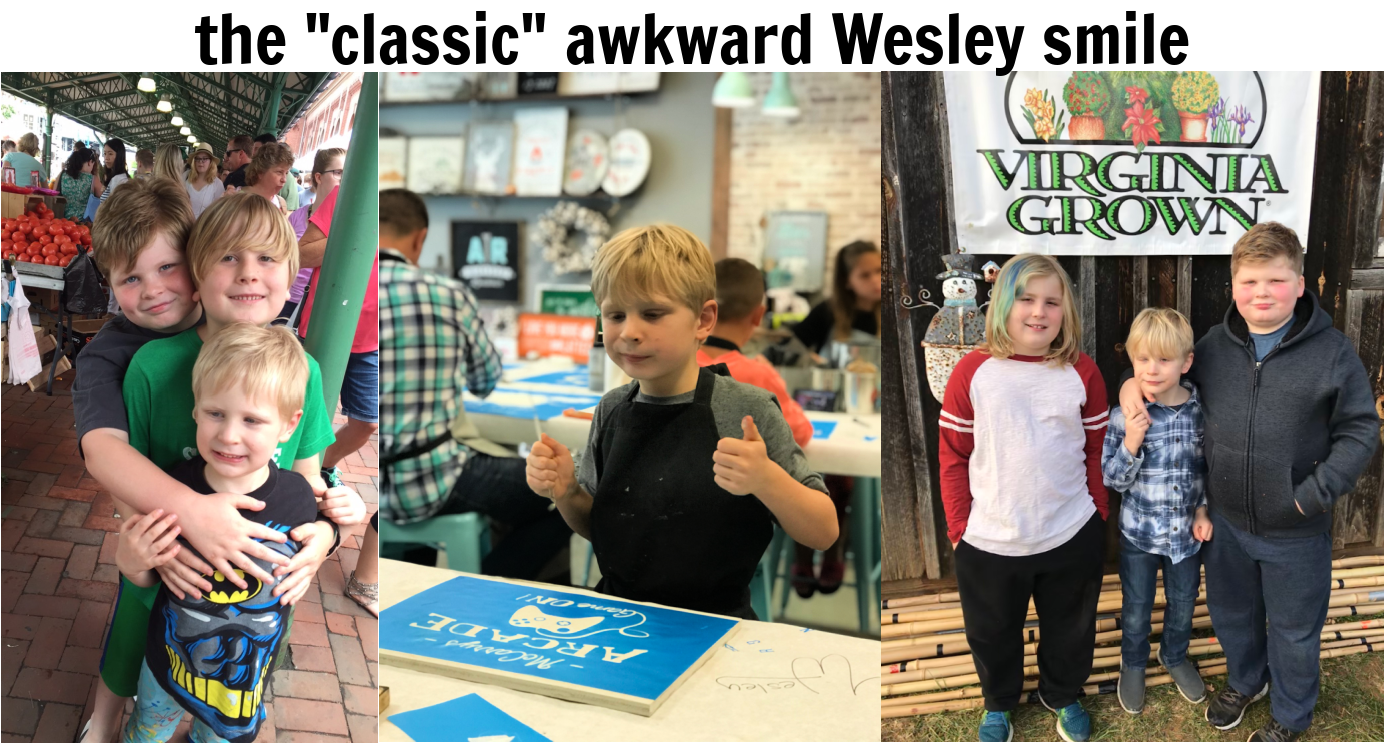 I used to get so frustrated that every photo of him he couldn’t make eye contact and was awkward,
I used to get so frustrated that every photo of him he couldn’t make eye contact and was awkward,
turns out he has a classic autistic smile and I now find it incredibly endearing
Diagnosis Changed His Life
I am not exaggerating when I say that diagnosis changed his life. The public school system is not set-up to recognized and empower individual needs or to focus on strengths and skills one may excel at. When the expectation for Wesley was to perform as a “normal” (audible eye-roll for us all, since there is no such thing) child, he was set-up to fail. Because he literally cannot. And, other children cannot do some of the many things he is incredibly skilled and proficient in (for example, identify and name every single flag for every single country in the world).
However, once the staff understood that some of his behaviors were not, in fact, from a place of “misbehavior” (again, after Collaborative Problem Solving certification I don’t believe this is real, either) but rather simply not understanding social rules or feeling too uncomfortable or anxious to perform expected activities, it changed everything. We went from “your son is doing this [insert bad thing]” texts and e-mails weekly to, several messages like:
I’d like to shout out Wesley for his commitment to excellence in math. He is doing his best to keep up with the classwork. When he has spare time he completes his Delta Math at school, and asks for breaks when needed. The other day, he was top 4 to get our challenging “Do Now” question correct. This was a question that even the advanced math kids struggled with. Today, he was one of a few to get a 15/15 on a study guide for an upcoming test.
In Language Arts, he elevates the discussions with his breadth and depth of knowledge. I’m happy to see his confidence and impressed with his dedication.
In addition, he stacks and unstacks chair at the beginning and end of class. He does it out of his own accord.
He will be getting my Math Student of the Month this afternoon 😊
How I Advocated for Him
One of the first things I did was call an IEP meeting in person. It was important to evoke compassion and empathy for the entire treatment team to understand his needs. With a Zoom people are multi-tasking and paying half-attention most of the time. For us all to be in person, they could share things they saw working in class with one another, and we were better able to strategies supports for him.
EVERY child is entitled to an IEP (or 504) review. EVERYONE (at least in the States). One of the first things I did was ask everyone to introduce themselves and something they saw or recognized as positive with Wesley. It really set the tone not just for introductions, but for us all to approach the meeting from a collective mindset of enhancing the student’s academic experience.
When it was my turn, I complimented a few of the teacher’s I’d worked more closely with, so they knew I was an ally not attacking their work. Then, asked if anyone thought Wesley unintelligent or incapable, immediately everyone balked – making it very clear that he was very bright. We agreed and said that our goal was to set Wesley up to be able to succeed, as he was capable. The result of that mid-year IEP meeting for 7th grade resulted in him struggling to not get D’s to STRAIGHT A’s. In fact, he is now a student who helps others in a number of areas.
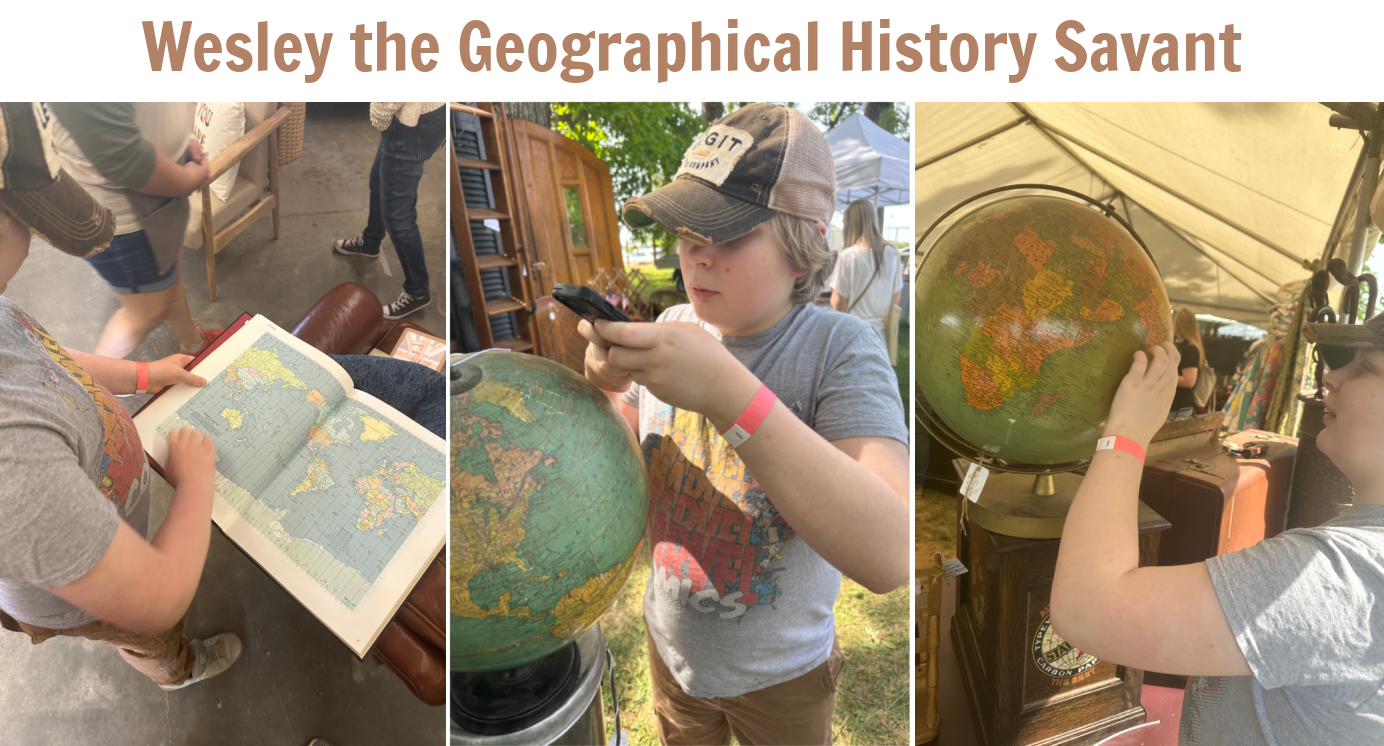
He’s Actually REALLY Cool
As his mother, of course I’m biased. And, we are also very grateful that we get a lot of the “benefits” of his autism (incredible intelligence, loving routine and rules) without many of the more difficult ones other families may face with someone on the spectrum who is not as high functioning. I can’t presume to know what that’s like, and we are only able to speak to out personal experience.
**And, as noted above, when you can understand the preferences and needs, it works well to incorporate them into daily life. For example, Wesley had a fantastic call with Russ Crandall (a family friend) when he was first starting his TikTok channel. Russ told him that the most important thing was consistency, and to just publish daily. Not overthink quality, that it would get better overtime. It was the BEST advice for a kid who loves routine. He took that and ran with it, building a now monetized platform where he shares history in a unique voice.
Let me tell you, if you have ANY history questions – come ask Wesley. As is typical with ASD, it is his “obsession.” Specifically, the niche of geographical history as told by flags and maps. For example, Wesley can narrow down very specific years of a globe or map simply by looking at it, recognizing the history based on the lines and names of countries. He began to collect knowledge of maps and flags years ago and now he is a prolific savant (and I mean that literally).
Supporting His Passions
He also has become an expert in a number of things that fascinate him, including electronic animation (helpful for his TikToks and impressing kids at school with building video games from scratch himself). I mean, look at what he made me for my birthday!
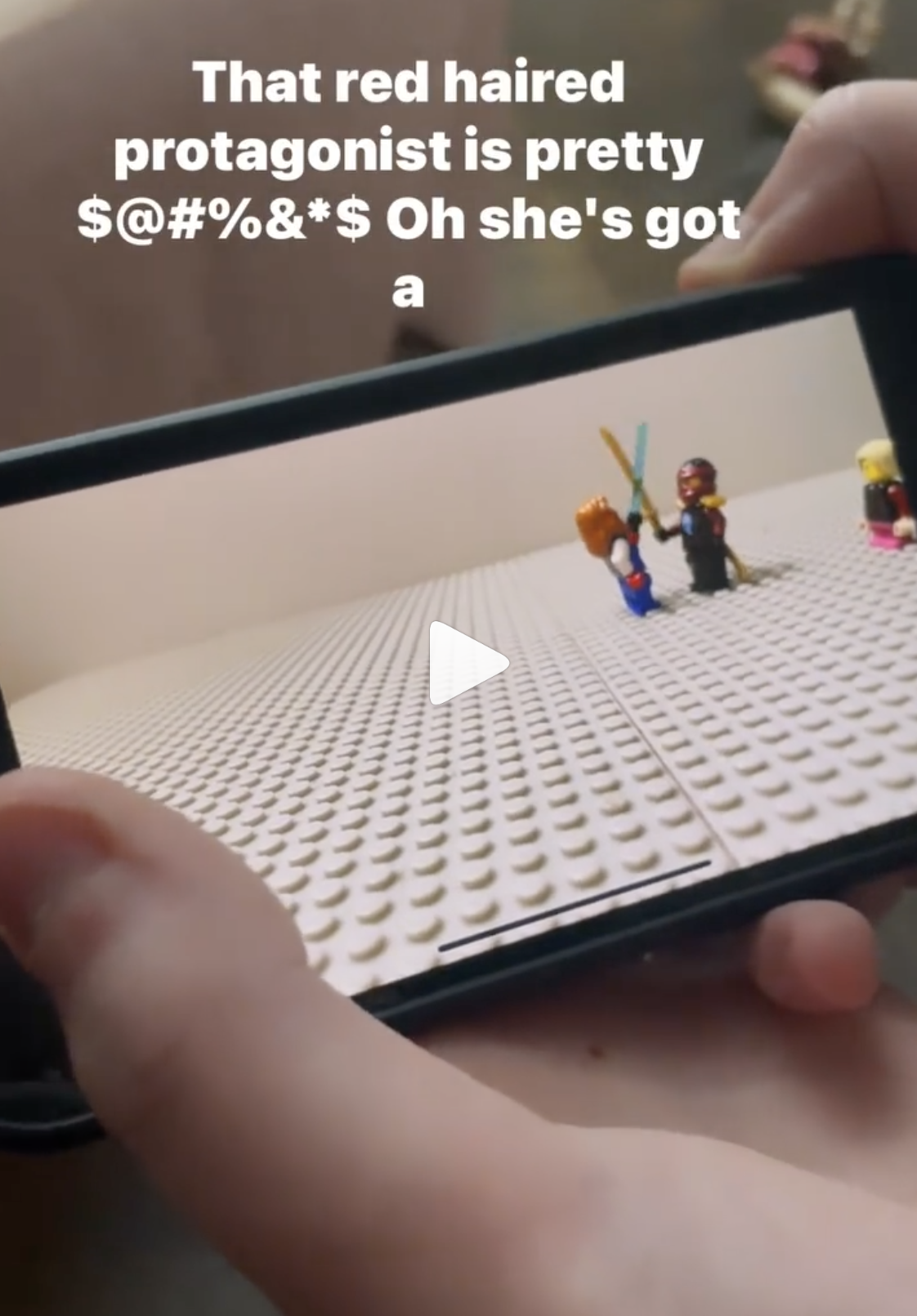
click to play
We have found that Wesley can get “stuck” focusing on needing to accomplish something he perceives it MUST be done. In working with him on some coping skills (like breathing and DBT practices), it enables him to move through the issue into letting us help him solve the problem sooner. And, it helps him be more open to additional activities or passions.
He has now he has blossomed under proper supports at school. He has beyond a college degree level of geographic historical knowledge. It has been so helpful to understand the why behind many things that confused us for a long time. I feel deeply for families who don’t have the resources and tools to navigate what could be difficult to understand. Since I have been through so much parenting training, rather than feel overwhelmed, we felt empowered with a diagnosis. It helped us know how to help him more.
And honestly, it’s helped him be his best self! He has leaned into his uniqueness and found a community on TikTok (6500+ followers) that has given him such confidence!
More:
There is NO “cure” for autism, nor would we want to change that about Wesley because it is inherent to his identity. And, because “the abundance of intestinal flora [is] greatly different in children with ASD, and that Bifidobacterium was associated with the severity of ASD [source]” we ensure Wesley takes a spore-based probiotic. We personally use this one (code WHOLEVIEW for 15%) off. He was also recommended to take Omega 3s and melatonin by his pediatrician who prescribes his ADHD medication (which we talked more about here in episode 416 of The Whole View).
Hear more about how we thrive as a neuro-diverse family (2 ADD, 1 ADHD, 1 ASD) in The Whole View podcast, 481.
You can keep up each week on Instagram and our newsletters.
Want more info on our Real Life? Healthy recipes, parenting tips, and general lifestyle stuff goes out in our Real Everything newsletter, join here.
Never want to miss a post, sale, or deal? Join my Healthy Inside & Out e-mail list for more info on non-toxic living and safer skincare!




